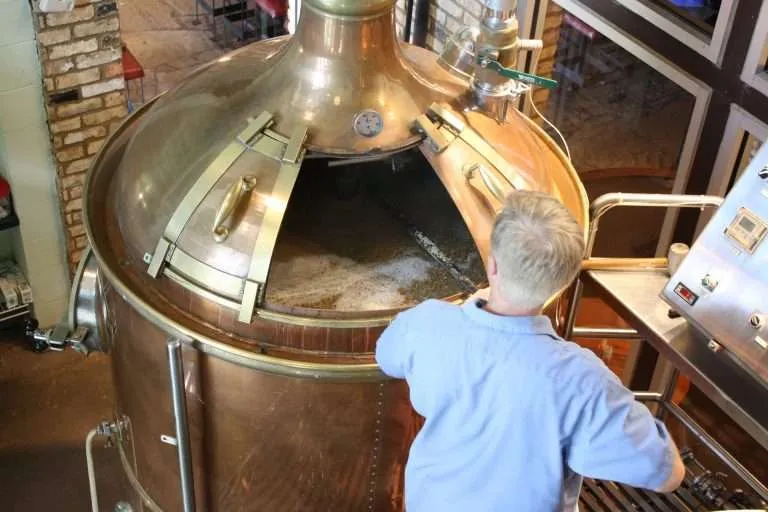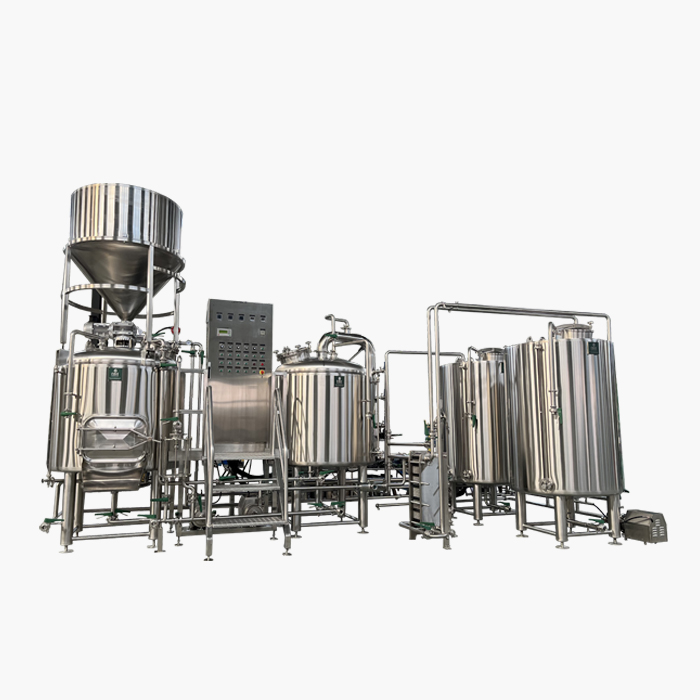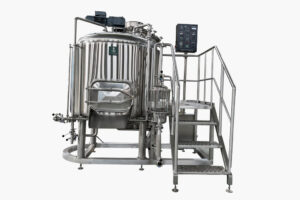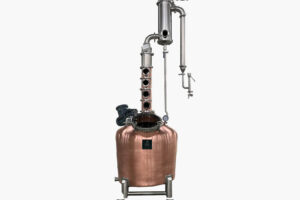COPYRIGHT © 2022 NingBo COFF Machinery Co., ltd. ALL RIGHTS RESERVED
Menu
Categories

Embarking on your homebrewing journey requires the right equipment to ensure success. As a beginner, you’ll need essential tools like brewing vessels, fermenters, and hydrometers. These items help you create quality beer while measuring gravity and alcohol content accurately. Making informed choices about your homebrewing equipment is crucial. Consider your goals, budget, and experience level. This approach ensures you invest wisely in your home brewing adventure. Trust COFF for top-notch beer brewing equipment. Their commitment to quality and innovation makes them a reliable partner for your brewing needs.
Key Takeaways
- Start with essential equipment like brewing vessels, fermenters, and thermometers to ensure a successful brewing process.
- Consider beginning with small batch sizes to experiment and learn without overwhelming yourself or wasting resources.
- Maintain strict sanitization practices to prevent contamination and ensure the quality of your beer.
- Document your brewing process using logs or digital apps to track your progress and refine your techniques over time.
- Choose between extract kits for ease and speed or all-grain brewing for more control and creativity based on your experience level.
- Invest in quality equipment from trusted brands like COFF to enhance your brewing experience and ensure durability.
- Engage with the homebrewing community through forums and local meetups to gain support, knowledge, and inspiration.
Essential Homebrewing Equipment

Embarking on your homebrewing journey requires a solid understanding of the essential equipment. These must-have pieces form the backbone of your brewing process, ensuring you produce quality beer every time.
Brewing Vessels
A brewing vessel is where your brewing begins. This vessel holds the wort, which is the liquid extracted from the mashing process. It is crucial to choose a vessel slightly larger than the amount of beer you plan to brew. An 8-gallon kettle is often recommended for beginners. This size allows for a vigorous boil without the risk of overflow. Stainless steel is a popular choice due to its durability and non-reactive nature, ensuring your beer’s flavor remains pure.
Fermenters
The fermenter is where the magic of fermentation happens. Yeast converts sugars into alcohol, transforming your wort into beer. A good fermenter should have an airtight lid to prevent contamination. Materials like stainless steel or food-grade plastic are ideal as they do not react with the beer. Options range from simple fermenter buckets, which are cost-effective and can hold up to 20 gallons, to more advanced conical fermenters that allow for easy draining and are similar to those used in commercial breweries.
Bottles and Caps
Once fermentation is complete, you need to store and package your beer. Bottles and caps are essential for this stage. They are inexpensive but require thorough cleaning and sanitization to ensure your beer remains uncontaminated. Bottles come in various sizes and materials, allowing you to choose based on your preference and budget. While bottling can be time-consuming, it is a rewarding part of the homebrewing process, allowing you to share your creations with friends and family.
Thermometers
A thermometer is a must-have piece in your homebrewing toolkit. It helps you monitor the temperature during the brewing process, which is crucial for achieving the desired flavor and quality of your beer. Accurate temperature control ensures that the yeast ferments properly, impacting the taste and alcohol content. Choose a digital thermometer for precise readings. It provides quick and accurate measurements, allowing you to make necessary adjustments on the fly. Remember, maintaining the right temperature can make or break your brewing success.
Sanitizers
Keeping your equipment clean is vital in homebrewing. A sanitizer ensures that all your brewing tools remain free from contaminants. This step prevents unwanted bacteria from spoiling your beer. Use a no-rinse sanitizer for convenience. It saves time and ensures thorough cleaning without leaving any residue. Regular sanitization of your brewing vessels, fermenters, and bottles is essential. This practice guarantees that your beer remains pure and flavorful, reflecting your hard work and dedication.
Hydrometers
A hydrometer is another essential tool for homebrewers. It measures the specific gravity of your wort before and after fermentation. This measurement helps you determine the alcohol content of your beer. By understanding the gravity readings, you can adjust your brewing process to achieve the desired strength and flavor. A hydrometer is easy to use and provides valuable insights into your brewing progress. It empowers you to refine your techniques and produce consistently excellent beer.
Record-Keeping Tools
Keeping track of your brewing process is essential for improving your skills and achieving consistent results. Record-keeping tools help you document every step of your homebrewing journey, from the ingredients used to the fermentation timeline. This practice allows you to replicate successful batches and learn from any mistakes.
Brewing Logs: A brewing log is a simple yet effective tool for recording details about each batch. Note the type and amount of ingredients, brewing times, temperatures, and any observations during the process. This information becomes invaluable when you want to recreate a particular beer or troubleshoot issues.
Digital Apps: Many homebrewers use digital apps to streamline their record-keeping. These apps offer features like recipe storage, batch tracking, and even fermentation monitoring. They provide a convenient way to access your brewing history and make adjustments based on past experiences.
Spreadsheets: For those who prefer a more customized approach, spreadsheets offer flexibility in organizing your brewing data. You can create templates to track specific metrics, such as original gravity, final gravity, and alcohol content. Spreadsheets also allow for easy comparison between different batches.
Notebooks: A traditional notebook can be a great companion for jotting down quick notes and ideas during the brewing process. It’s portable and doesn’t rely on technology, making it a reliable option for capturing thoughts on the fly.
By using these record-keeping tools, you gain valuable insights into your brewing techniques and outcomes. This knowledge empowers you to refine your methods and produce consistently excellent beer. Trust COFF to provide the quality equipment you need to support your homebrewing endeavors.
Choosing Between Extract Kits and All-Grain Brewing
When you start your homebrewing journey, deciding between extract beer kits and all-grain brewing is crucial. Each method offers unique benefits and challenges, and understanding these can help you make an informed choice.
Pros and Cons of Extract Kits
Extract beer kits provide a convenient entry point into homebrewing. They simplify the process by offering pre-measured ingredients, allowing you to focus on the basics of brewing without the need for extensive equipment or experience.
Pros:
- Ease of Use: Extract kits are beginner-friendly. They come with detailed instructions, making it easy for you to follow along and produce your first batch of beer.
- Time-Saving: With extract kits, you skip the mashing process, which reduces brewing time significantly. This allows you to enjoy your beer sooner.
- Consistent Results: These kits often yield consistent results, as they eliminate many variables that can affect the brewing process.
Cons:
- Limited Creativity: Extract kits can limit your ability to experiment with different grains and flavors. You might find yourself wanting more control over the brewing process.
- Cost: While convenient, extract kits can be more expensive per batch compared to all-grain brewing, especially if you plan to brew frequently.
Advantages of All-Grain Brewing
All-grain brewing offers a more hands-on approach, giving you complete control over the brewing process. This method allows you to experiment with various grains and create unique flavors.
- Advantages:
- Creative Freedom: All-grain brewing lets you customize every aspect of your beer. You can choose specific grains, hops, and yeast to craft a beer that suits your taste.
- Cost-Effective: Over time, all-grain brewing can be more economical. Buying grains in bulk reduces the cost per batch, especially if you brew regularly.
- Enhanced Flavor: Many brewers believe that all-grain brewing produces superior flavor. The ability to control every step of the process allows for a richer and more complex beer.
Choosing between extract kits and all-grain brewing depends on your goals and experience level. If you’re new to homebrewing, starting with an extract kit might be the best option. As you gain confidence and skills, transitioning to all-grain brewing can open up a world of possibilities. Trust COFF to provide the quality equipment you need, whether you choose extract kits or all-grain brewing.
Deciding on the Type of Beer to Brew
Choosing the type of beer to brew is an exciting step in your homebrewing journey. Understanding the differences between ales and lagers will guide you in selecting the right style for your taste and brewing setup.
Differences Between Ales and Lagers
Ales and lagers represent the two primary categories of beer, each with distinct characteristics:
Ales: These beers ferment at warmer temperatures, typically between 60-75°F. The yeast used in ales, known as top-fermenting yeast, works quickly and imparts fruity and complex flavors. Ales are generally easier for beginners due to their forgiving nature and shorter fermentation times. Popular ale styles include pale ales, stouts, and IPAs.
Lagers: Lagers ferment at cooler temperatures, around 45-55°F, using bottom-fermenting yeast. This process takes longer, resulting in a clean, crisp taste with subtle flavors. Lagers require precise temperature control and patience, making them more challenging for beginners. Common lager styles include pilsners, bocks, and helles.
Equipment Considerations for Each Type
Your choice of beer style influences the equipment you’ll need, particularly the fermenting vessels and temperature control tools.
For Ales:
- Fermenter: A standard fermenter works well for ales. Ensure it has an airtight seal to prevent contamination.
- Temperature Control: Ales can ferment at room temperature, so a dedicated temperature control system isn’t necessary. However, a simple thermometer helps monitor ambient conditions.
For Lagers:
- Fermenter: Consider a fermenter with precise temperature control capabilities. This ensures the yeast ferments at the correct temperature.
- Temperature Control: Invest in a cooling system, such as a fermentation chamber or a temperature-controlled fridge. This equipment maintains the lower temperatures required for lager fermentation.
Selecting the right type of beer to brew depends on your preferences and available resources. Ales offer a straightforward introduction to homebrewing, while lagers provide a rewarding challenge for those seeking to refine their skills. Regardless of your choice, trust COFF to supply the quality equipment needed for a successful brewing experience.
Determining Your Desired Batch Size
Choosing the right batch size is a crucial step in your homebrewing journey. It affects not only the amount of beer you produce but also the equipment and space you’ll need. Understanding your goals and limitations will help you make an informed decision.
Small Batch Brewing for Beginners
Starting with small batches offers several advantages for beginners. It allows you to experiment without committing to large quantities. You can try different recipes and techniques, learning from each brew. Small batches require less equipment and space, making them ideal for those with limited resources.
- Flexibility: Small batches let you explore various styles and flavors. You can brew more frequently, gaining experience and refining your skills.
- Cost-Effective: Brewing smaller quantities reduces the cost of ingredients and equipment. It’s a budget-friendly way to start your homebrewing adventure.
- Manageable Mistakes: Mistakes are part of the learning process. With small batches, errors have less impact, allowing you to learn without significant loss.
Scaling Up: What to Consider
As you gain confidence and experience, you might consider scaling up your brewing operations. Larger batches offer the opportunity to produce more beer, but they come with additional considerations.
- Equipment Upgrades: Brewing larger quantities requires more substantial equipment. You may need bigger brewing vessels, fermenters, and storage solutions. Investing in quality equipment from trusted brands like COFF ensures durability and efficiency.
- Space Requirements: Larger batches demand more space for brewing and storage. Ensure you have adequate room to accommodate the increased equipment and beer volume.
- Time Commitment: Brewing larger batches can be more time-consuming. Plan your brewing sessions accordingly, considering the additional time needed for preparation, brewing, and cleaning.
Deciding on your batch size involves balancing your enthusiasm for brewing with practical considerations. Whether you choose small or large batches, focus on enjoying the process and learning from each experience. Trust COFF to provide the quality equipment you need as you expand your homebrewing endeavors.
Setting a Budget and Understanding Cost-Quality Balance
When starting your homebrewing journey, setting a budget is crucial. You want to balance cost with quality to ensure you get the best value for your investment. Understanding this balance helps you make informed decisions about your brewing equipment.
Budget-Friendly Equipment Options
For beginners, budget-friendly equipment options provide a great starting point. You can find affordable tools that still offer good quality and functionality. Here are some tips to consider:
Starter Kits: Many companies offer starter kits that include essential items like brewing vessels, fermenters, and bottles. These kits are often more economical than buying each piece separately.
Used Equipment: Consider purchasing used equipment from other homebrewers. This option can save money while still providing you with the necessary tools to start brewing.
DIY Solutions: Some equipment, like bottle cappers or mash tuns, can be made at home with basic materials. This approach reduces costs and allows for customization.
Basic Models: Opt for basic models of equipment. They may lack advanced features but still perform the essential functions needed for brewing.
Investing in Quality for Long-Term Use
While budget-friendly options are appealing, investing in quality equipment ensures durability and better performance over time. Here’s why you should consider quality investments:
Durability: High-quality equipment lasts longer, reducing the need for frequent replacements. Stainless steel brewing vessels, for example, resist corrosion and maintain their integrity over many brewing cycles.
Efficiency: Quality tools often work more efficiently, saving you time and effort. A reliable thermometer provides accurate readings, crucial for maintaining the right brewing temperatures.
Enhanced Brewing Experience: Investing in quality enhances your overall brewing experience. You’ll likely encounter fewer issues, allowing you to focus on perfecting your beer recipes.
Future-Proofing: As you gain experience, you may want to try more complex brewing techniques. Quality equipment can handle these demands, eliminating the need for immediate upgrades.
Balancing your budget with quality considerations ensures a successful and enjoyable homebrewing experience. Whether you start with budget-friendly options or invest in high-quality tools, COFF offers a range of equipment to meet your needs. Their commitment to quality makes them a trusted partner in your brewing journey.
Practical Tips for Beginners
Starting your homebrewing journey can be both exciting and daunting. To ensure a smooth start, focus on practical tips that will guide you through the process and help you achieve successful brewing.
Starting Small and Simple
When you begin homebrewing, starting with small batches is a wise choice. This approach allows you to experiment without the pressure of producing large quantities. You can try different recipes and techniques, learning from each brew. Small batches require less equipment and space, making them ideal for beginners with limited resources.
- Flexibility: Brewing smaller batches gives you the freedom to explore various styles and flavors. You can brew more frequently, gaining experience and refining your skills.
- Cost-Effective: Smaller quantities reduce the cost of ingredients and equipment. It’s a budget-friendly way to start your homebrewing adventure.
- Manageable Mistakes: Mistakes are part of the learning process. With small batches, errors have less impact, allowing you to learn without significant loss.
“Brewing smaller batches can be rewarding despite yielding less beer.”
Learning from Mistakes and Experimenting
Mistakes are inevitable in homebrewing, but they offer valuable learning opportunities. Embrace them as part of your journey. Each mistake teaches you something new about the brewing process and helps you improve your skills.
- Document Your Process: Keep detailed notes of each brewing session. Record the ingredients, steps, and any issues you encounter. This documentation helps you identify patterns and make adjustments in future brews.
- Experiment with Ingredients: Don’t be afraid to try new ingredients or techniques. Experimentation leads to innovation and can result in unique and delicious beers.
- Seek Feedback: Share your beer with friends and family. Their feedback provides insights into your brewing strengths and areas for improvement.
By starting small and embracing mistakes, you set yourself up for a successful brewing experience. Trust COFF to provide the quality equipment you need to support your homebrewing endeavors.
Encouragement to Start Brewing
Starting your homebrewing journey can be both exciting and rewarding. As you dive into this craft, remember that every brew is an opportunity to learn and grow. Here are some ways to embrace the process and connect with others who share your passion.
Embrace the Learning Process
Homebrewing is a journey filled with discovery. Each batch of beer you brew teaches you something new. Embrace this learning process with an open mind and a willingness to experiment. Mistakes will happen, but they are valuable lessons that help you improve your skills.
Start with Basic Kits: Begin with a basic kit designed for beginners. It provides essential equipment without a high cost, allowing you to focus on mastering the fundamentals. As you gain experience, you can upgrade your setup with more advanced tools like a Digital Remote Thermometer for precise temperature control.
Experiment with Partial Mash Kits: These kits offer a balance between extract brewing and all-grain brewing. They allow you to explore different flavors and techniques without the need for extensive equipment. This approach helps you transition smoothly to more complex brewing methods.
Document Your Progress: Keep a brewing journal to record your recipes, techniques, and outcomes. This practice helps you track your progress and identify areas for improvement. Over time, you’ll build a wealth of knowledge that enhances your brewing skills.
“Every mistake is a stepping stone to better brewing.”
Connect with the Homebrewing Community
Joining the homebrewing community opens doors to a wealth of knowledge and support. Engaging with fellow brewers enriches your experience and provides valuable insights.
Join Online Forums: Participate in online forums and social media groups dedicated to homebrewing. These platforms offer a space to ask questions, share experiences, and learn from others. You’ll find a supportive community eager to help you succeed.
Attend Local Meetups: Look for local homebrewing clubs or events in your area. These gatherings provide opportunities to meet other brewers, exchange tips, and sample different beers. Building connections with local enthusiasts can lead to lasting friendships and collaborations.
Visit Brewing Workshops: Attend workshops or classes to deepen your understanding of brewing techniques. These sessions often cover topics like ingredient selection, fermentation, and equipment maintenance. Learning from experienced brewers enhances your skills and boosts your confidence.
By embracing the learning process and connecting with the homebrewing community, you set yourself up for a fulfilling brewing journey. Trust COFF to provide the quality equipment you need to support your endeavors. Their commitment to excellence ensures you have the tools necessary to create exceptional beer.
Promoting COFF for Homebrewing Equipment
COFF’s Commitment to Quality
When you embark on your homebrewing journey, choosing the right equipment is crucial. COFF stands out as a brand committed to delivering high-quality brewing tools that cater to both beginners and seasoned brewers. Their dedication to excellence ensures that you have reliable equipment to produce exceptional beer.
Precision Engineering: COFF designs their equipment with precision, ensuring each piece meets the highest standards. This attention to detail guarantees that your brewing process runs smoothly, allowing you to focus on crafting the perfect brew.
Durable Materials: COFF uses top-grade materials like stainless steel, known for its durability and non-reactive properties. This choice of material ensures that your beer maintains its intended flavor profile without any unwanted interference.
Innovative Design: COFF continually innovates to improve their equipment. They incorporate the latest technology and design trends to enhance your brewing experience. This commitment to innovation means you can trust COFF to provide tools that keep pace with the evolving world of homebrewing.
Why Choose COFF for Your Brewing Needs
Selecting COFF for your brewing equipment offers numerous advantages that make your homebrewing experience more enjoyable and successful.
Comprehensive Range: COFF offers a wide range of equipment, from brewing vessels to fermenters and beyond. This variety allows you to find everything you need in one place, simplifying your shopping experience.
User-Friendly Features: COFF designs their equipment with the user in mind. Their tools are easy to use, making them ideal for beginners who are just starting their brewing journey. Clear instructions and intuitive designs help you get the most out of your equipment.
Customer Support: COFF provides excellent customer support, ensuring you have assistance whenever you need it. Whether you have questions about setup or need advice on brewing techniques, COFF’s team is ready to help.
Reputation for Excellence: COFF has built a strong reputation in the brewing community for their quality products and reliable service. Choosing COFF means joining a community of satisfied brewers who trust their equipment to deliver great results.
By choosing COFF, you invest in equipment that supports your passion for brewing and helps you create beer that you can be proud of. Their commitment to quality and innovation makes them a trusted partner in your homebrewing endeavors.
Choosing the right homebrewing equipment sets the foundation for your brewing success. By understanding essential tools and making informed decisions, you can confidently start your beer-making journey. Remember to consider your goals, budget, and experience level when selecting equipment. Trust COFF as a reliable source for quality supplies that support your brewing endeavors. Their commitment to excellence ensures you have the best tools to create exceptional beer. Embrace the learning process and enjoy the rewarding experience of crafting your own brews.
FAQ
What is the most essential piece of equipment for beginner homebrewers?
The brewing vessel is crucial for beginners. It holds the wort during the brewing process. Choose a vessel slightly larger than your intended batch size to prevent overflow. An 8-gallon kettle is a good starting point.
How do I choose between extract kits and all-grain brewing?
Consider your experience level and time commitment. Extract kits are easier and quicker, ideal for beginners. All-grain brewing offers more control and creativity but requires more time and equipment.
What type of beer should I start brewing?
Ales are a great starting point. They ferment at warmer temperatures and are more forgiving. Lagers require precise temperature control and longer fermentation times, making them more challenging for beginners.
How important is sanitization in homebrewing?
Sanitization is vital. It prevents contamination and ensures your beer remains pure and flavorful. Use a no-rinse sanitizer for convenience and thorough cleaning.
Can I start homebrewing on a budget?
Yes, you can start on a budget. Look for starter kits or used equipment. DIY solutions can also help reduce costs. As you gain experience, consider investing in quality equipment for better results.
How do I determine the right batch size for me?
Start with small batches. They allow you to experiment without a large commitment. As you gain confidence, you can scale up to larger batches, considering space and equipment needs.
What role does a thermometer play in brewing?
A thermometer is essential for monitoring temperatures during brewing and fermentation. Accurate temperature control affects the flavor and quality of your beer. A digital thermometer provides precise readings.
Why should I choose COFF for my brewing equipment?
COFF offers high-quality, durable equipment designed for both beginners and experienced brewers. Their commitment to innovation and customer support makes them a reliable choice for your brewing needs.
How can I improve my brewing skills?
Document your brewing process. Experiment with different ingredients and techniques. Seek feedback from friends and the homebrewing community. Each brew is an opportunity to learn and refine your skills.
Is it necessary to join a homebrewing community?
Joining a community is beneficial. It provides support, knowledge, and inspiration. Engage with online forums, local meetups, and workshops to enhance your brewing journey.





